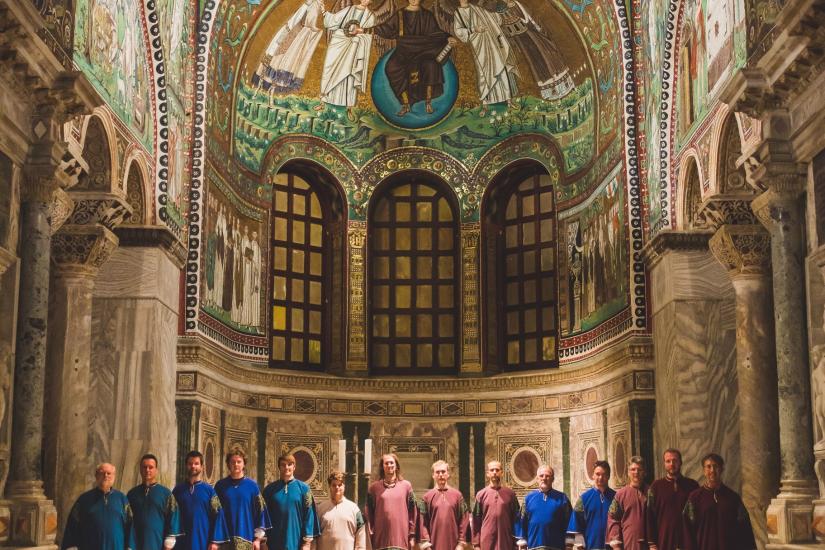
Introduction: Agni parthene... Ote kathiltes... - Greek-Byzantine hymns
1./ Wa habibi - Traditional Lebanese Good Friday hymn in Arabic, solo: Kéringer László
2./ Hagios ho Theos - Hymn from the Hilandar monastery at Mount Athos (13th century), solo: Bubnó Márk
3./ Three medival Russian hymns (16th century), solo: Bubnó Tamás
4./ Dmitrij Bortniansky: Slava vo visnih Bogu (18th century)
5./ Grigorij Lvovsky: Gospodi pomiliuj (19th century)
6./ Boksay János: Sviatij Bozhe (20th century)
7./ Sáry László: Énekeljetek az Úrnak [Sing unto the Lord] (21st century) - six-part psalm canon
8./ Serge Rachmaninoff: Blagoslovi duse moja Gospoda (20th century) solo: Rajk Judit
—
Tornyai Péter: Dixit (selections) [World premier]
Zétényi Tamás - cello
Kéringer László - tenor
Rajk Judit - contralto
Saint Ephraim Male Choir (artistic director: Bubnó Tamás)
Nevelő János - percussion
Tornyai Péter – conductor
This special concert will feature the world famous Saint Ephraim Male Choir in collaboration with CEU Artist-in-Residence Classicus Ensemble. The first part of the concert will provide a selection of the choir’s wide-ranging repertory in chronological order, featuring the vocal heritage of Byzantine-rite Christianity. This eclectic compilation serves as a transcendentally organic sound-piety that sets off at the ancient monody and arrives at the multi-part motets of our time.
A world premier will take place in the second half of the concert. Tornyai Péter’s Dixit is a seven movement piece written for Zétényi Tamás and the Saint Ephraim Male Choir. The libretto of the composition is based on the seven days of the Creation juxtaposed with the seven last words of Jesus Christ from the cross, all in Latin, with a theological parallel drawn from St. Augustine’s writings. The combination of a solo cello, the two solo voices, and a male choir provides a special, unique soundscape for the transcendental theme of this composition.
More about the Saint Ephraim Male Choir:
http://programmes.szentefrem.hu/biography/
More about Classicus Ensemble:
http://classicus.hu/en/
Admission is free!